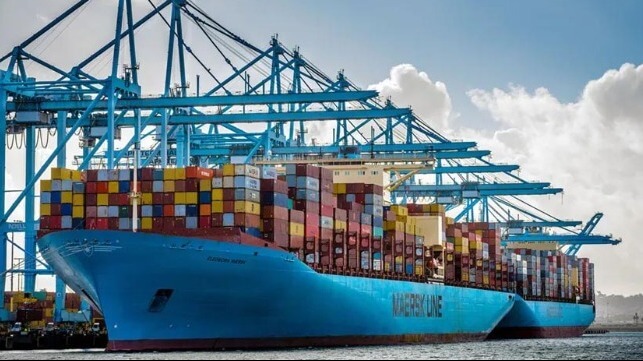Association Alleges to FMC Maersk Cost it $180M in Denial of Service

A U.S.-based shippers association has become the latest to file a complaint with the Federal Maritime Commission alleging a denial of service by a carrier during the surge in container shipping over the past two years. U Shippers Group filed the complaint against Maersk alleging violations of the Shipping Act that have cost the company in excess of $180 million and continuing to accrue in lost fees and higher shipping costs. While this is the first complaint by a shipping association, similar accusations of carriers failing to honor long-term freight contracts are growing at the FMC mostly from smaller shippers against lines including MSC, HMM, Yang Ming, and others.
“Maersk’s actions constitute a failure by it to establish, observe, and enforce just and reasonable practices related to receiving, handling, storing, and delivery property of U Shippers,” the company writes in the complaint served by the FMC on August 30. While different in that the complaint is filed by an association as opposed to the individual shipper, the basics of the complaint like the others are that the carrier refused shipments under its long-term contract forcing the shippers to buy space at greatly inflated costs in the spot market. They also allege that Maersk was reassigning space allocated to their shipments into the spot market to realize the higher prices or selling space directly to its members in violation of agreements between the carrier and the association.
Unlike many of the recent FMC complaints by shippers who had contracts for just a few hundred containers a year, U Shipper as an association contends it had exclusive agreements with Maersk as well as participating in a “volume incentive program” based upon the number of containers U Shippers’ members brought to Maersk.
The association said it entered into a contract with Maersk in June 2020 and as part of the shipping services also agreed to a two-year exclusive agreement using a new online booking system named Twill being launched by Maersk. However, beginning in late 2020 or 2021, the association alleges that Maersk “embarked on a series of acts designed to shut out U Shippers from utilizing the space promised to it under the service contract.”
Among the action they allege in the FMC complaint is that Maersk declined to provide the shipping volumes it committed to in the contract as well as in some cases allowing non-members to book space using U Shippers’ contract. Members they said were forced into the spot market to get space. Later they contend that Maersk also permitted members to set up direct accounts on the online booking system bypassing U Shippers.
“Maersk engaged in the unreasonable practice of not only refusing to provide contractually agreed upon space under its service contract with U Shippers but instead allocating such space to individual members of U Shippers or other shippers’ associations,” the FMC complaint states. “Maersk compounded the damages suffered by U Shippers by unreasonably refusing to deal and negotiate with U Shippers on future service contracts.”
In addition to the denial of service, the association says it also indicated to Maersk that it planned to extend the agreement and the system exclusivity. Maersk, they claim reneged and they were later informed that Maersk did not want to work with the association.

that matters most
Get the latest maritime news delivered to your inbox daily.
Under the rules governing the FMC process, the presiding officer has one year to issue their initial decision in this proceeding. The final decision of the commission must be issued by March 15, 2024.
Unreasonable business practices such as these recurrent complaints of carriers not honoring contracts and forcing shippers into the spot market were one of the driving issues that contributed to the 2022 reform of the Ocean Shipping Act. With the recent leveling-off and declines in volumes reported by carriers, it is expected that these issues will recede. The FMC, however, has also recently launched its new investigations and enforcement structures mandated by the legislation designed to address complaints of unreasonable business practices by the carriers and violations of the Shipping Act.
